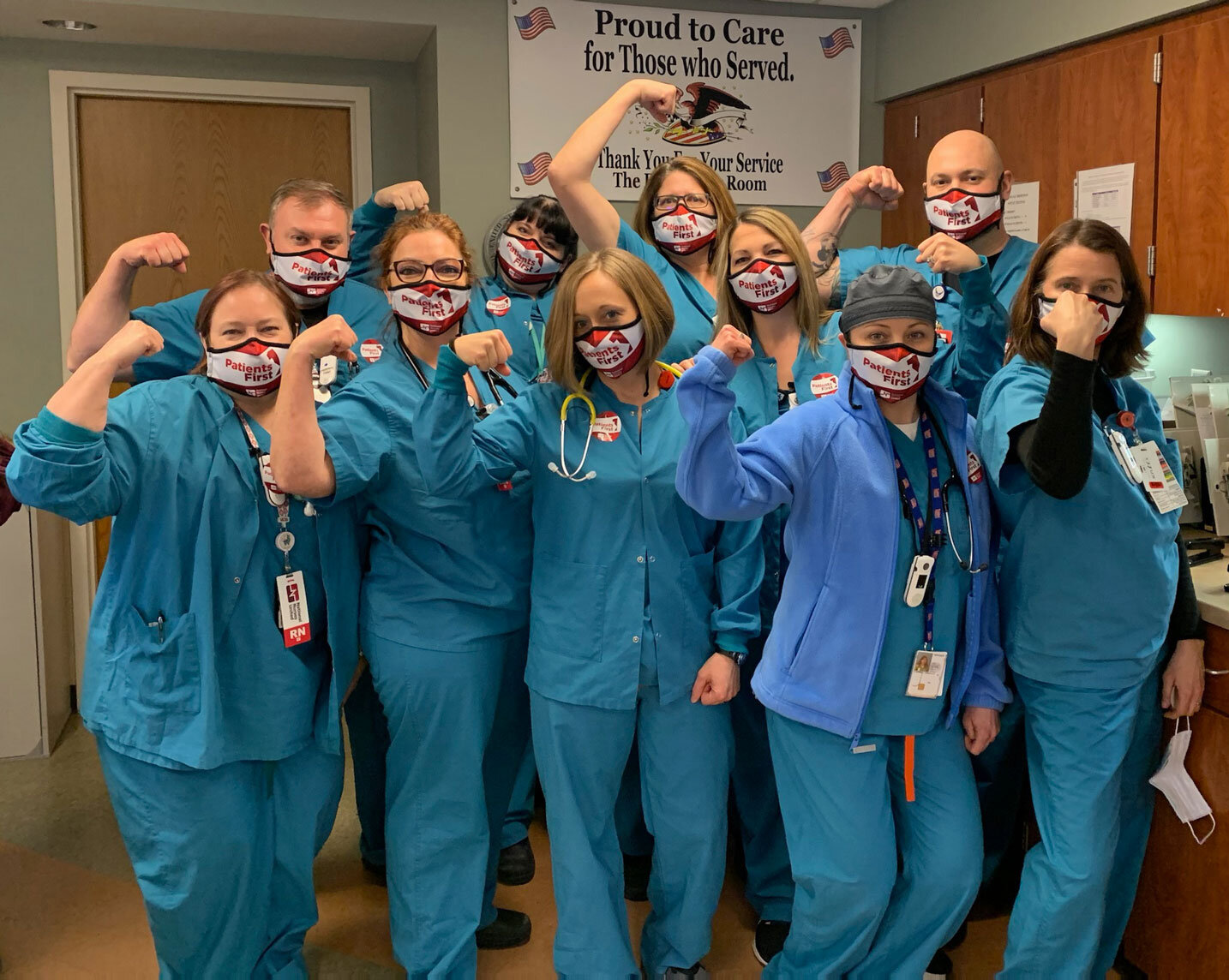California APRN Licensing Information
Advanced Practice Registered Nursing (APRN) licenses in California reflect the high level of training, skills, and expertise nurses achieve. APRN roles require graduate-level education and often a certification in a specialized practice area.
California APRN Licensing Information
- State Introduction: In California, APRN licensing includes several roles, such as Nurse Practitioner (NP), Certified Registered Nurse Anesthetist (CRNA), Clinical Nurse Specialist (CNS), and Certified Nurse-Midwife (CNM), each with its own set of requirements and scope of practice.
- Education Requirements: APRNs in California must complete a graduate-level program accredited by the ACEN or CCNE. For more information on NP education, visit:
- Certification: California requires APRNs to be certified through a national board, which indicates proficiency in a particular practice area.
- State Licensure: The licensure process involves an application, background checks, and meeting state-specific requirements. Detailed information is available on the California Board of Nursing website.
- Prescriptive Authority: In California, the requirements for prescriptive authority include additional education in pharmacology and, in some cases, a collaborative agreement.
- Renewal and Continuing Education: APRN licenses in California need to be renewed regularly, with specific continuing education requirements depending on the APRN role.
- Practice Authority: California law defines the scope of practice for APRNs and may require collaborative agreements with physicians for certain practice extents.
- eNLC Participation: California does not participate in the eNLC, which affects APRNs by limiting their ability to practice across state lines without obtaining additional licensure.
- Scope of Practice: California APRNs have a defined range of procedures they can perform, depending on their certification and role.
- Role-Specific Requirements: Additional role-specific requirements may include certain clinical hours, education, or skills pertinent to each APRN role.
- Transition to Practice: New APRNs in California or those moving from another state may undergo a transition period to ensure they are fully prepared for independent practice.
- Insurance and Liability: Malpractice insurance is crucial for APRNs in California, and the specifics depend on employment and regulatory requirements.
Types of California RN Licenses and Requirements
The California Board of Registered Nursing (BRN) issues multiple license types at the registered nurse level:
- RN License: For graduates of Board-approved pre-licensure registered nursing programs.
- Interim Permit: Allows pre-licensure students to obtain supervised clinical experience.
- Temporary License: For qualified license-by-endorsement applicants awaiting complete processing.
Additional designations of Advanced Practice RN (including Nurse Practitioner, Nurse Midwife, and Nurse Anesthetist) and Public Health Nurse also exist for specialized roles after meeting further educational and certification requirements.
Key Terms Around Nursing Licensure
Familiarizing yourself with the following key terms will help you navigate California’s nursing licensure process:
- Examination Applicant: A candidate applying for initial RN licensure based on passing the NCLEX-RN examination, having never been licensed in another state.
- Licensure by Endorsement: Process whereby an experienced RN with a current license from another U.S. state or Canada transfers and converts it to an equivalent California license through endorsement.
- Renewal: Licensed RNs must periodically renew their license with the BRN to legally continue practicing.
California Board of Registered Nursing
The California Board of Registered Nurses (BRN) serves public protection by overseeing the licensure process and evaluating nursing education programs, legislation, and nursing practice standards across the state.
Grasping the BRN’s organizational structure and role supports your pathway to licensure and ability to access its regulatory resources.
BRN Members and Committees
The BRN Board Members appointed by the Governor of California vote on nursing regulation policies and disciplinary decisions by committees focused on education, nursing practice, legislation, enforcement, and more.
Advisory committees like the Nursing Practice Committee also influence relevant standards and guidelines around competent RN practice. Aspiring nurses may choose to gain experience on such committees.
Verifying Licensure Status
The BRN licenses and regulates over 450,000 RNs, making them one of the largest nursing bodies nationally. You can verify an RN’s license status, issuance date, expiration date, and more through the publicly searchable National Nursy e-Notify system. This allows healthcare employers and others to validate credentials.
Guides and References
Essential BRN resources, including their Nursing Practice Act, disciplinary guidelines, position statements, and approved nursing schools, are available under their website’s “Licensee Guide“ section.
RN Licensure Requirements in California
Meeting all CA requirements to earn your Registered Nursing license ensures you’ll gain approval to administer skilled nursing care. This involves qualifying education, exams, application paperwork, and fees.
Approved Prelicensure Nursing Programs
The most common pathway involves:
- Earning a nursing diploma from a California BRN-approved RN pre-licensure program, including:
- Associate Degree in Nursing (ADN)
- Bachelor of Science in Nursing (BSN)
- Entry-level master’s program
- Direct-entry master’s program
- These typically take 2-4 years to complete, including clinical training.
Alternate options like military education apply in some instances.
Additional Application Requirements
Alongside nursing program completion, BRN licensure necessitates:
- Passing the National Council Licensure Examination for RNs (NCLEX-RN)
- Undergoing fingerprinting for a DOJ/FBI criminal background check
- Meeting education requirements
- Demonstrating U.S. citizenship/immigration status
Fees must also be paid to process applications.
Advanced Practice Nursing Licenses in California
Experienced RNs looking to expand their knowledge and take on greater healthcare responsibilities may pursue Advanced Practice RN specialty licenses.
Licensure Requirements for APNs:
- Hold an active California RN license
- Earn a graduate degree in a BRN-approved APRN program for your chosen specialization
- Get additional national certification for your specialty role by exam (e.g., FNP-BC)
- Meet experience hours requirements
- Apply for state certification in the advanced role
Popular paths include becoming a:
- Nurse Practitioner (NP)
- Certified Nurse-Midwife (CNM)
- Clinical Nurse Specialist (CNS)
- Certified Registered Nurse Anesthetist (CRNA)
The scope expands greatly to include prescribing medication, developing patient treatment plans, administering anesthesia, and signing documents like death certificates.
Take Licensing Exams in California
All candidates seeking RN licensure must pass the NCLEX-RN examination administered at regional test centers by the National Council of State Boards of Nursing (NCSBN).
Registering for the NCLEX-RN
Submit an Examination Application to the California BRN, then register for a test date with Pearson VUE after they send you an Authorization to Test letter. Scheduling early ensures an ideal location and time.
Certification Exams for Advanced Roles
Specialized APRN roles require additional national certification examinations (e.g., ANCC or AACN) to demonstrate competent advanced practice in a nursing specialty. Research the options in your chosen concentration.
License by Examination
Meeting all CA BRN requirements is vital for examination applicants pursuing initial Registered Nurse licensure. Follow these steps for smooth processing.
Examination Application
Submit a completed Application for Licensure by Examination with necessary fees plus:
- Official sealed transcripts
- Fingerprint cards for background checks
- Proof of U.S. citizenship or immigration status
Passport photos must also be attached.
The whole process can exceed six weeks as different groups process components.
Supporting Documentation
Have the following key records available if requested for validation:
- Clinical facility logs from clinical training
- Letters documenting graduation, degree conferred, or enrollment
- Explanation letters around any background checks/disciplinary issues
Application Processing Timeframe
You can check processing times for the Application for Licensure by Examination around six weeks following submission, as they vary based on volume.
General BRN timelines include:
- Transcript evaluation: ~12 weeks
- Background checks: ~8 weeks
- Full application processing: ~12 weeks
License by Endorsement
Licensed RNs from other U.S. states or Canada seeking to transfer their credentials via endorsement to practice in California must meet key requirements.
Endorsement Application Materials
To submit an endorsement application directly to the BRN, include:
- Completed Application for Licensure by Endorsement form
- Associated fees
- Fingerprint cards
- Proof of citizenship or legal permissions
Having past license verification forms and transcripts readily available if requested can smooth this transition.
Additional Requirements
The BRN grants licensure through endorsement provided all qualifications are met, including:
- Having a current and active RN license in another state
- Graduating from an appropriate prelicensure registered nursing program.
- Passing the NCLEX RN national examination
- Having completed relevant continuing education
- Settling any prior disciplinary incidents
Temporary License Availability
The BRN may issue interim 120-day temporary licenses allowing endorsement applicants to work under an approved RN while finishing the full application process. However, temporary licenses cannot be renewed or extended.
License Renewals
Maintaining an active California RN license status by properly renewing your license every two years allows you to continue practicing legally.
Renewal Application Timing
The standard renewal window spans 60 to 30 days before the expiration date printed on your current license card. You are submitting applications earlier than 60 days risks processing delays.
Staggered expiration dates help ease renewal volume. Failing to renew before the license lapses will require paying additional fee penalties.
California CE Requirements
RNs must complete 30 continuing education contact hours for each renewal cycle spanning the prior two years. At least four hours are required on substance use disorders. CE allows nurses to maintain competence.
Resources for Nursing License in California
- NCSBN: The National Council of State Boards of Nursing (NCSBN) is an organization that collaborates with nursing regulatory bodies in the United States to ensure safe and effective nursing practice. They develop and maintain the NCLEX-RN and NCLEX-PN examinations for RNs and LVNs. In addition, they provide information on licensing and regulatory requirements for California nurses.
- NCLEX: The National Council Licensure Examination (NCLEX) is a standardized exam used to assess the competence of nursing graduates in the United States. The NCLEX-RN is for registered nurses, and the NCLEX-PN is for licensed vocational nurses. Both exams are required for nursing licensure in California.
- Pearson VUE: Pearson VUE is a global testing services provider that administers the NCLEX exams for nursing licensure. They offer testing centers and online scheduling for California nursing candidates to take the NCLEX-RN or NCLEX-PN exams.
- Nursys: Nursys is a comprehensive online database that provides information on nursing licensure, discipline, and practice privileges for RNs and LVNs across the United States. California nurses can use Nursys to verify their license status and access other vital licensure information.
- 50 State Nursing License Information: This resource offers a centralized hub for nursing licensure information across all 50 states, including California. It details license requirements, application processes, and contact information for each state’s nursing regulatory body.
- Best Nursing Schools in California: This resource showcases the top nursing schools in California, offering insights into program rankings, accreditation, and curriculum. It can help prospective nursing students make informed decisions about their nursing education to meet California licensure requirements.



